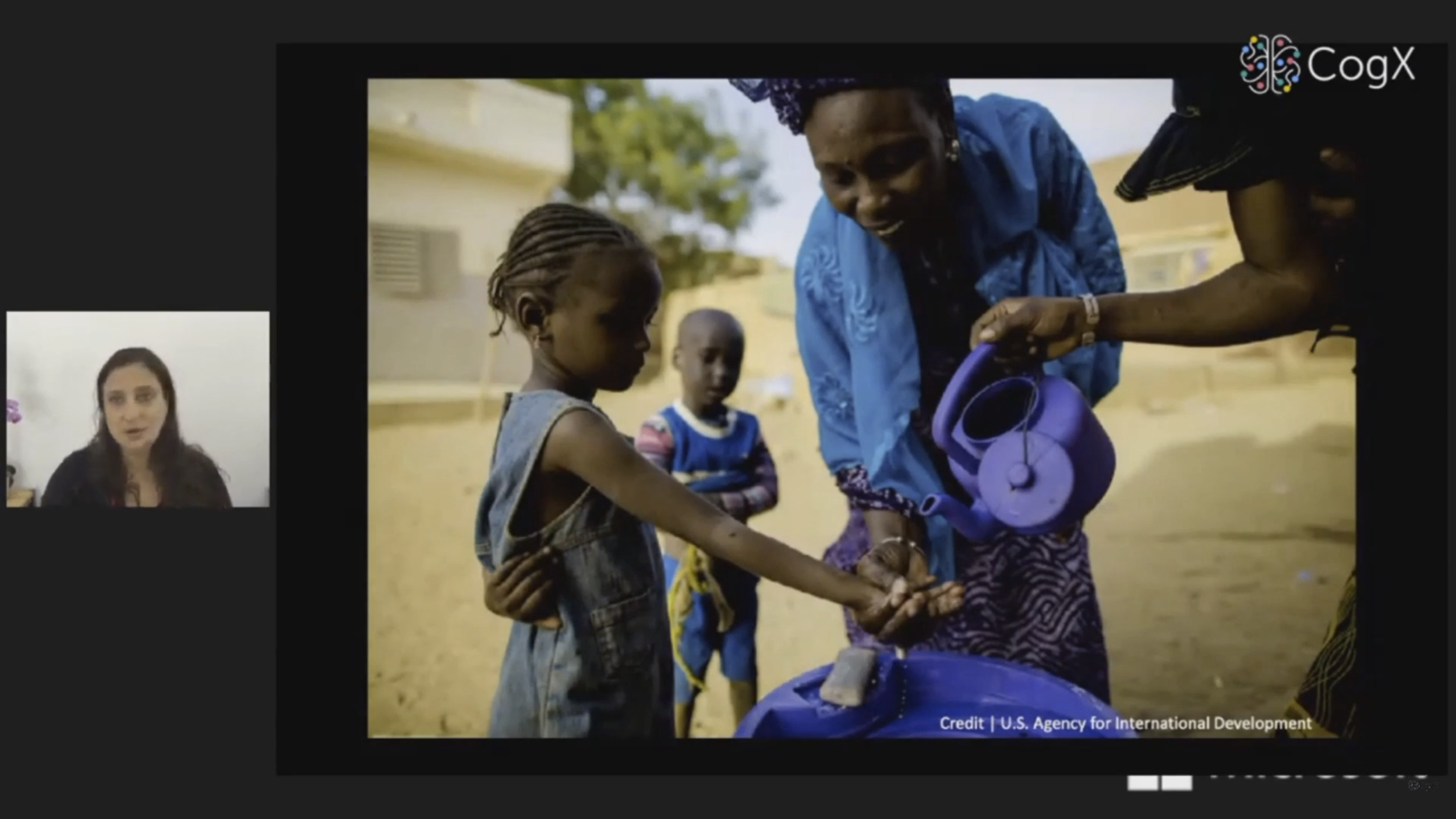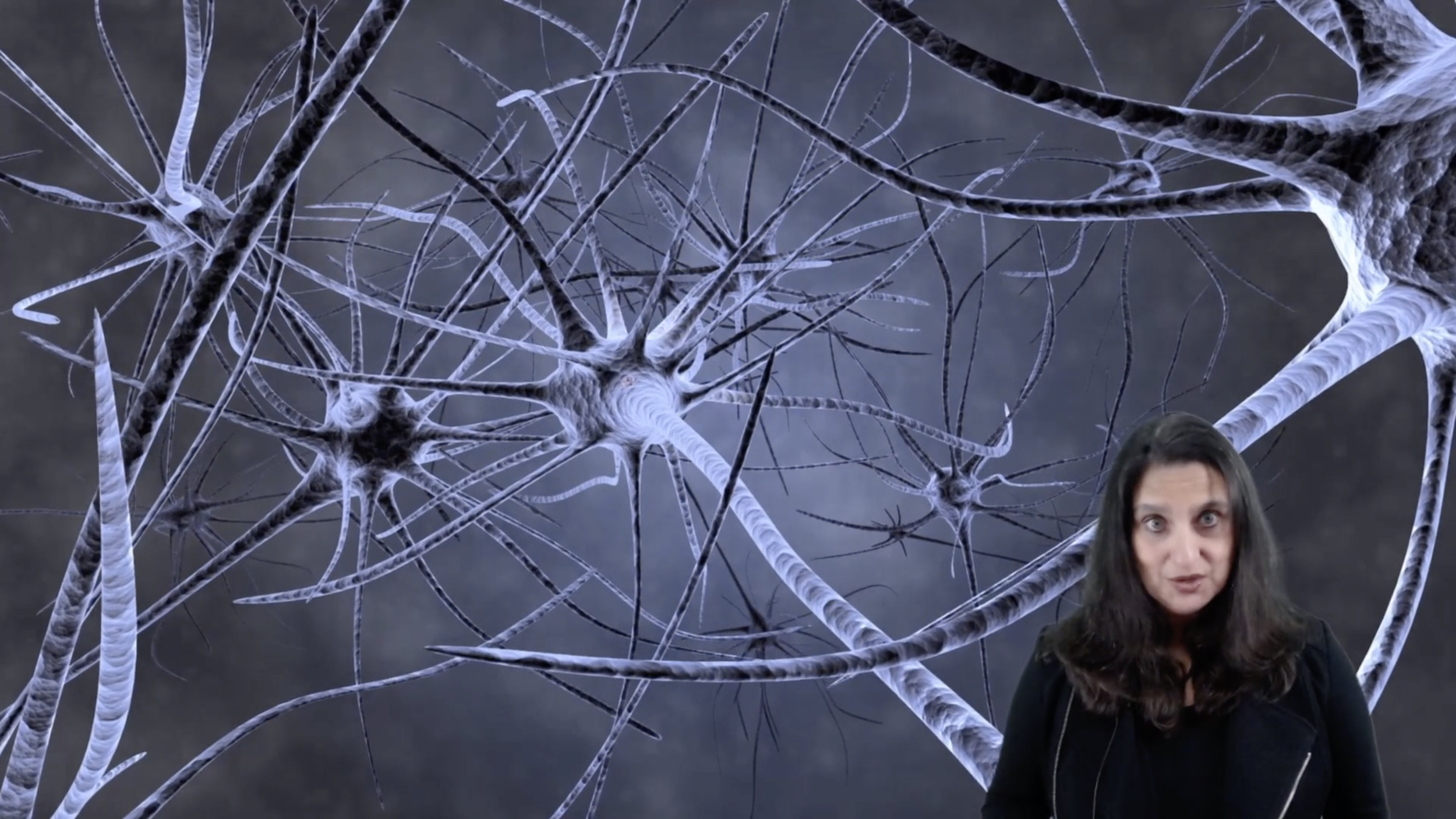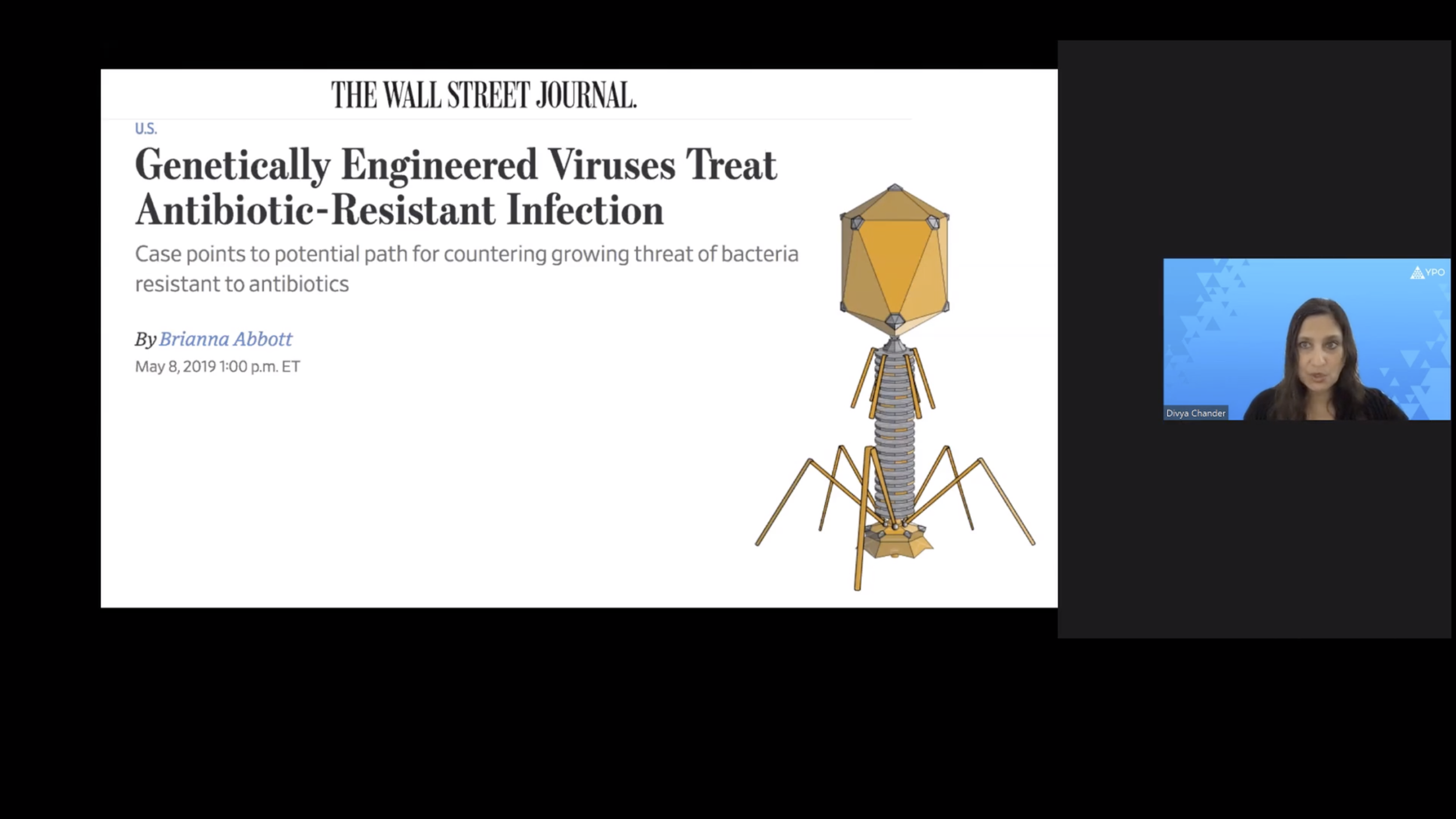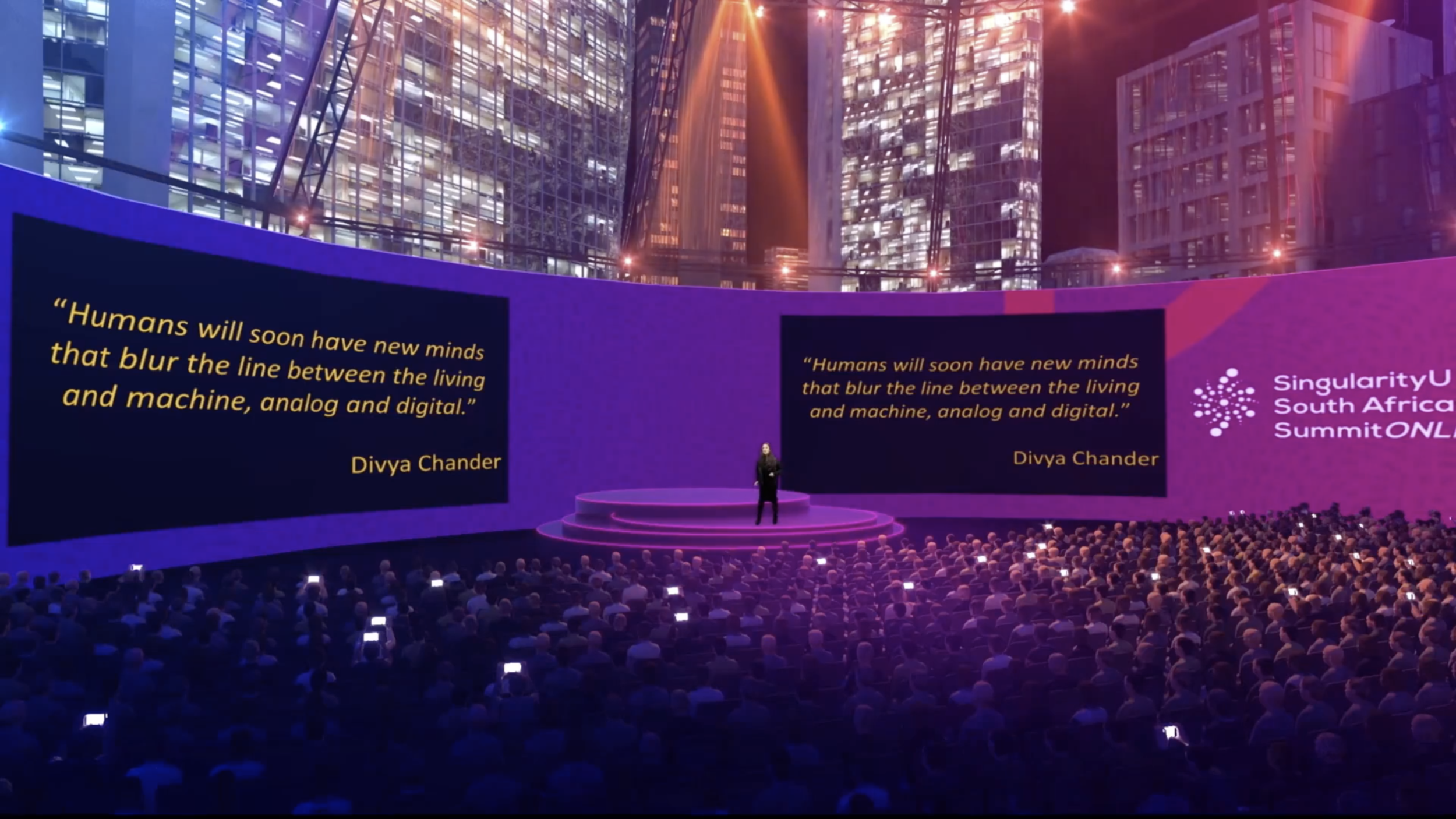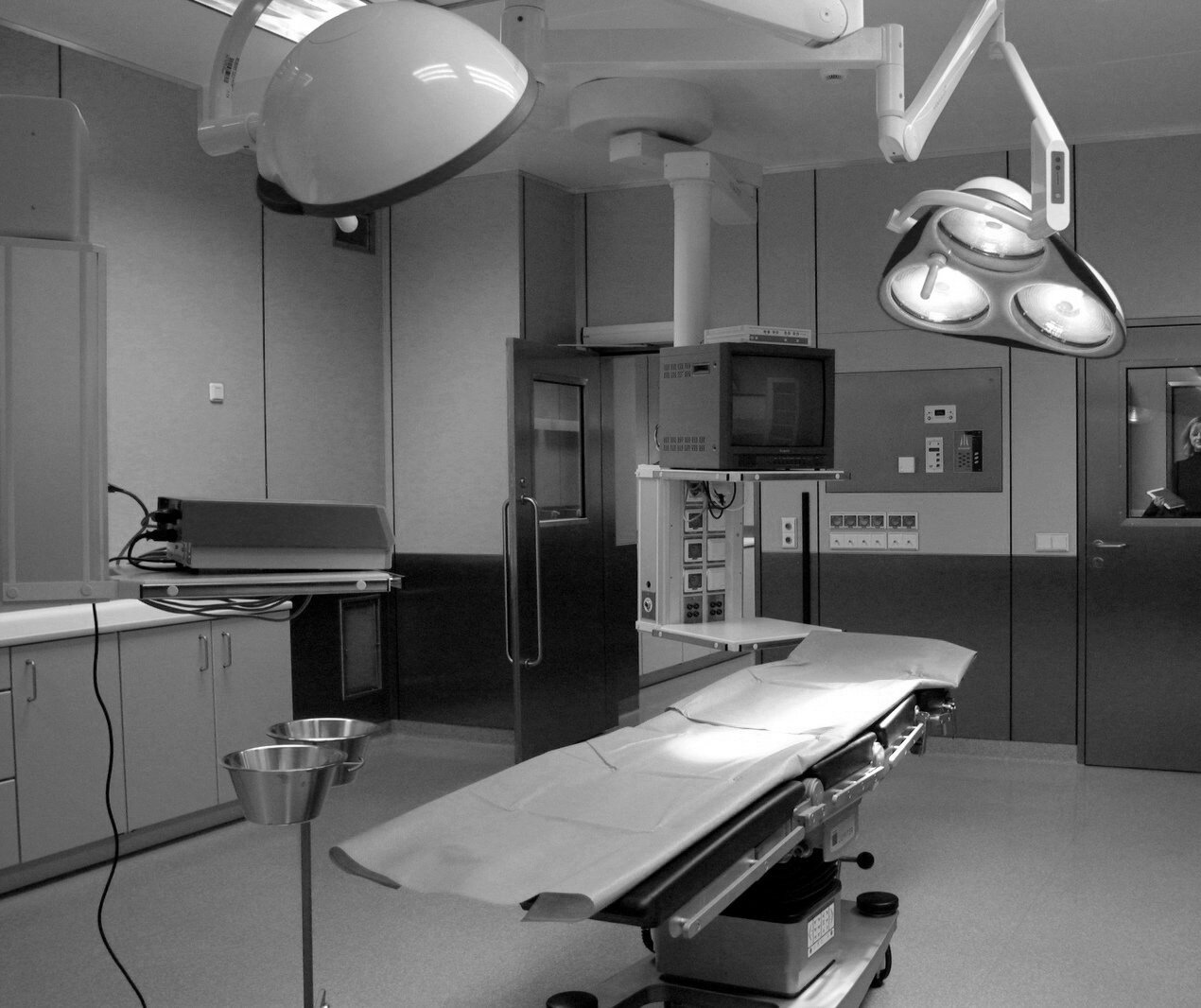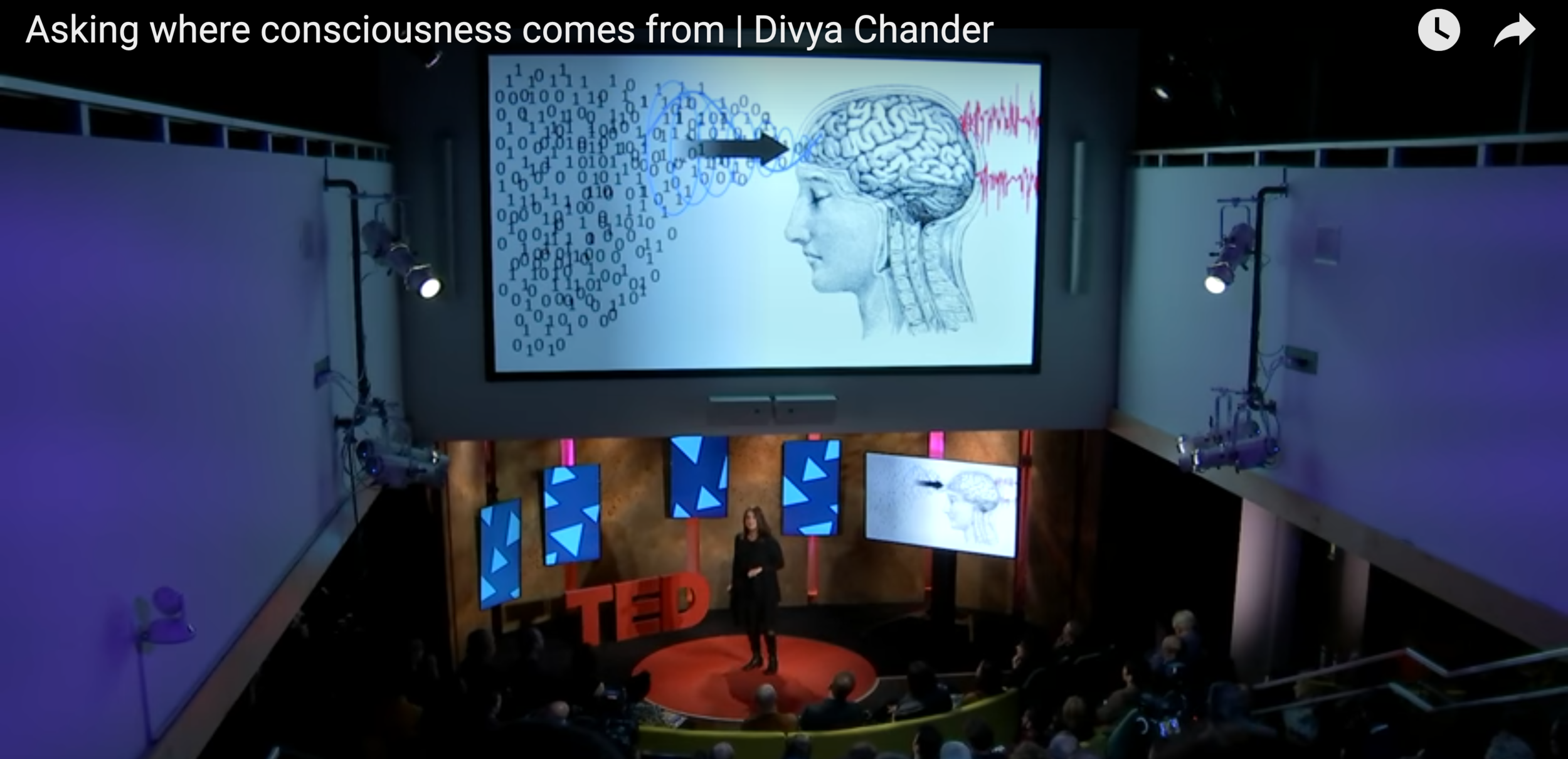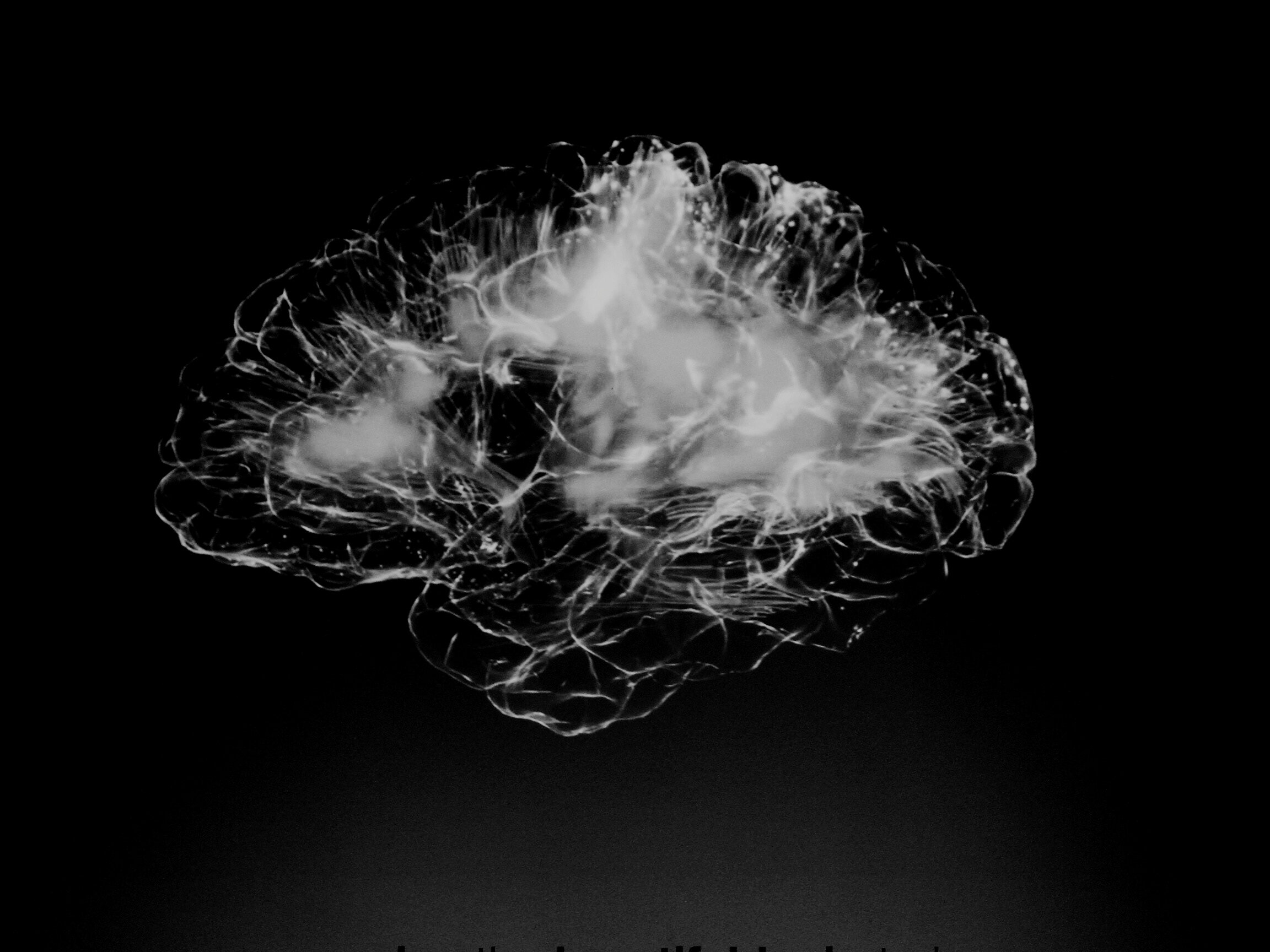
About Divya
Dr. Divya Chander is a physician, neuroscientist, and futurist who trained at Harvard, UCSF, UCSD, and the Salk Institute. She is currently the Chair of Neuroscience and Faculty in Medicine at Singularity University. She is also a Visiting Scholar in the Stanford Department of Medicine, Biomedical Informatics, and was a member of the Stanford Anesthesiology Faculty for 8 years. Her postdoctoral training Stanford (Deisseroth/de Lecea Labs) allowed her to use light-activated ion channels inserted in DNA (optogenetics) to study sleep and consciousness switches in brains. In the operating room, she applies EEG technology to understand what human brains and the underlying networks look like when they lose and regain consciousness. She also has a precision medicine initiative focused on understanding genetic variability in responses to anesthetic drugs and brain oscillations. Her goal is to understand neural mechanisms of consciousness, as well as the evolution of human consciousness secondary to human augmentation.
She is working on devices that read and write the brain (brain mapping, neuromodulation) and link to brain machine interfaces for diagnostic and therapeutic purposes.
Her work also crosses into studies of human longevity. There is no extended human lifespan without the preservation of the brain and mind. How do technologies like brain machine interfaces, human augmentation and cryonics affect the future of human consciousness?
Divya also works in the field of space life sciences. A finalist for astronaut selection and an alumnus of the International Space University, she has performed remote simulations of trauma rescues, anesthesia and surgery in Mars analogue settings with physicians in the US, France, and the Concordia base in Antarctica. She has also been involved with a consortium that elaborated a road-map for studying the effect of microgravity and radiation on the nervous system, cardiovascular system, cognition and sleep.
Keynote Speaking
NOTE: in this time of social distancing, a virtual format is now available for all talks. please reach out to inquire.
Neuroscience
Neuroscience is on the cutting edge of decoding brains, making it possible like never before to peer into brains and hijack their circuitry. In this talk, I explore how old and new technologies make it possible to read visions and dreams, hack thoughts, and plant false memories. We also look at how modern medicine and science make it possible to restore and enhance function to people who are paralyzed, opening the door to digital and robotic control with the human mind. This is a journey from brain reading to brain writing to closed-loop brain machine interface systems.
A foundation in neuroscience is also instrumental to understanding cognitive health, longevity, and even leadership. Brain science can bring us to the point where were are exploring our highest selves.
The ultimate exploration is in the science of consciousness. Here we look at what network properties fundamentally support consciousness in brains, whether consciousness is a peculai
Medicine/
Healthcare
Medicine is being transformed by exponential technologies that often are developed in the non-healthcare space. I explore how breakthroughs in 3D printing, robotics, artificial intelligence, stem cells, augmented and virtual reality, microfluidics, nanotechnology, and brain machine interfaces are pushing medicine into the realm of science fiction. New diagnostics, therapies, and even augmentation are considered, as well as their ethical implications. How do these advances impact economics? Growth? Politics? Human evolution?
Depending on the audience, this talk can be delivered through the lens of personalized medicine, improved access to healthcare, or longevity. For pharma, I focus on the changes that will revolutionize drug delivery, therapeutic development and clinical trials. The ethical implications of the revolution in medicine and healthcare is also addressed.
Bioethics
The pace of biotechnology appears to have outstripped our pace of social and ethical understanding – both the near and long-term implications for humanity and the biosphere. This has never been more true as we have gained the ability to rewrite both the genetic and the neural code, fundamentally changing what it means to be human. In addition, the ability to implant, read and write functions to humans leaves us vulnerable to losing our privacy, or even being hacked and manipulated. This talk explores the ethical implications of the technology we have developed, which is exploding at an exponential rate, and considers some new solutions. This topic is important to everyone – students, educators, scientists, entrepreneurs, global technology giants, governments, and regulators.
Columbia Earth Institute Sustain What? Webcast: Can technology help us build a shock resistant planet? Can we build the global immune system?


